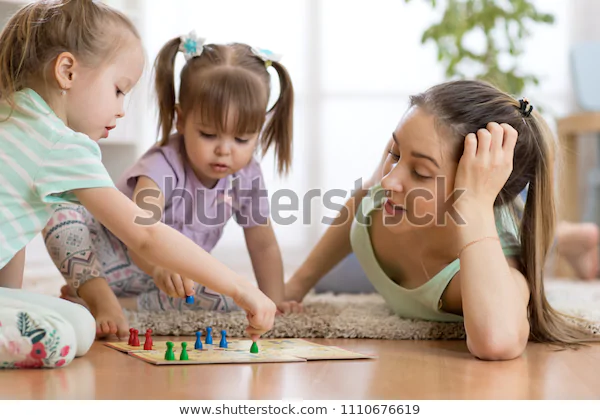Every child learns or takes in information in their own individual way. But the one universal method of improving a child’s learning and development is through fun! One of the biggest mistakes that parents or teachers make is limiting learning to the classroom or approaching learning in a way that it feels like a chore to a child. Instead, intellectual, social and academic growth should be encouraged through creative play and different activities beyond the classroom.
You can help support the growth and development of your child by making learning fun in your own home. Some activities that help stimulate the brain but are fun at the same time include:
Puzzles
It’s easy as parents and children to overlook the humble puzzle in favour of the latest flashiest tech toy. But puzzles are really good for a child’s development and problem-solving skills. A simple puzzle can provide so many benefits for children at any age or stage. Not to mention, it’s a great way to get the whole family together and having fun instead of spending the night watching the TV and not really engaging with each other.
Puzzles help promote key cognitive skills, and challenges children to be active rather than passive learners. Where does this piece go? Why doesn’t it fit? What do I need to do? Puzzles will ask your child to try and try again, which will also help them to develop a sense of emotional resilience which is important in teaching them to keep persevering if presented with a challenge.
Cooking
The next time you get the pots and pans out to cook a meal or bake a treat, get the kids involved! It’s never too early to introduce children to the kitchen and to have them help with the cooking and cleaning.
Cooking has many benefits for a child. It’s a life skill that will benefit them in later life and once which will also teach them about different foods, flavours and making healthy choices. Stirring, mixing, rolling, shaping – all these cooking techniques help to improve hand-eye coordination and fine motor skills.
Children also learn about math and reading. From measuring out ingredients to reading & learning to understand instructional writing, cooking will help foster creativity and fun as well as introduce the kids to food and good nutrition.
Learning an instrument
Music and learning to play an instrument exposes children to several benefits. It’s also a great way of encouraging a child to express themselves and to unleash their creativity.
Whether it’s the piano or triangle, learning a new instrument will expose your child to language skills, maths skills, memory and concentration skills as well as increased coordination. Making music with others, whether it’s with their siblings, friends or a music class, will also improve your child’s social skills and help them to learn about teamwork and empathy.
Try to expose your child to as much music as possible, whether that be through introducing an instrument, singing songs, going to concerts or even coming up with your own instrument from objects found in the house!
Online learning games
Whether we like it or not, technology really does help make learning more fun. There are many online educational games and applications designed to assist children with their learning and development.
These educational games for kids help to develop literacy & numeracy skills along with cognitive development and memory. Kids can go on fun quests and earn prizes for correct answers, helping to motivate them to keep trying. A survey of 1,000 Australian parents found that 95% of them believe online educational programs are important for primary school children.
These games allow children to continue learning classroom-based lessons in the comfort of their own homes, where parents can become involved and provide the right tools to help support their child’s learning.
Board games
While most of us can confess to having a stockpile of board games at the back of the cupboard, it turns out we should be getting them out more regularly for the benefit of our brains! Board games are particularly special because they don’t require any use of technology. Not only that, but they can also prove valuable when it comes to the opportunities they bring for early learning and development.
Simple games like Candy Land, Uno, Scrabble and Connect 4 help children to identify colours, patterns, and count spaces as well as build on literacy & numeracy skills. Not to mention, they provide a good lesson in patience! If you find the kids are getting far too much screen time and need to ‘unplug’, get them all together, provide some of your favourite snacks and have a family board game night!
Make every day a learning day
Making learning fun will help to encourage the kids to engage in activities to boost their brainpower. Not only will it help them to cope and excel in the classroom, but it will also expose them to creative problem-solving, critical thinking and important life skills. Turning every day into a learning day through fun, engaging activities will help develop an atmosphere of learning that doesn’t feel like a chore to a child.


